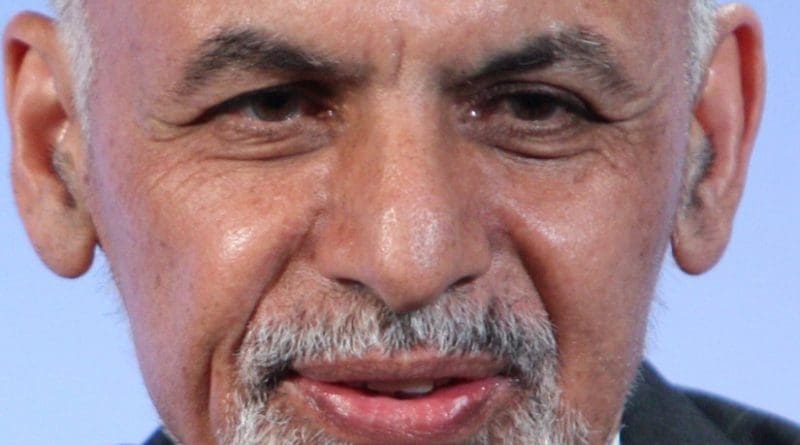Pursuing The Afghanistan Peace Process – OpEd
At the very beginning of his government, the Afghan President Ashraf Ghani had made the negotiation with the Taliban and the restoration of peace in his country a top priority agenda. In the regional political milieu, almost all of the surrounding states are particularly concerned about the future of the region in the wake of NATO forces drawdown and the reduced combat mission of existing ISAF troops in Afghanistan. Some countries in the region like China, Pakistan and Iran (particularly after coming out of the isolation as a result of Iran and P5+1 nuclear deal) have greater roles to play for the regional peace and progress.
Besides the fact that the Taliban are once again gaining significant momentum in almost 26 provinces out of 34 and the Unity Regime under President Ashraf Ghani is also facing staid divisions therefore, for Afghan Government it is the need of hour to conduct a series of result oriented talks with the Taliban and other stakeholders for a better progressive, peaceful and politically stables Afghanistan rather than still prevalent anarchic society and unstable political order only apt for chaos and the civil war.
Since taking office in September 2014, President Ghani has pursued Pakistan’s special support to come across a peaceful settlement for his war-ridden country because Pakistan is particularly important for Afghanistan than any other country in the region due to various dynamics which are counted as eternal bounds at both sides. The commonalities like, religion, culture, language, geographic proximity, ethnic connections and many other factors which make their relations, interests and sufferings interconnected with each other, therefore it is also strongly believed that peace and progress in Afghanistan are indeed peace and progress in Pakistan.
Pakistan is currently hosting the negotiation process between the Afghan Government and Taliban and the first round of talks was held in Pakistan in the first week of July, 2015. The talks are a result of several informal meetings between the Taliban and Afghan government representatives which took place in Qatar and Norway through the high profile links on both sides along with special efforts of an international organization the Pugwash Conference- (a Nobel Peace Prize Winner private group).
After the successful conduct of the first round of talks on July 7, there are further prospects about the progress in the talks as both the sides strongly realized the need to develop confidence-building measures (CBMs) aimed at bringing peace and reconciliation in Afghanistan. These rounds of talks are hoped to be strapping initiative towards the most significant and fruitful impetus towards the point of reshaping the existing political and security discourse as these talks are also viewed as a major breakthrough and have been hailed by US, China, NATO and the UN Security Council. The supreme commander of the Afghan Taliban Mullah Mohammad Omer is also supporting the peace talks with the Afghan government with the endeavour to oust the foreign troops from their land.
The second round of the talks between the Taliban and the Afghan Government is also expected to be hosted by Pakistan at the end of this month intending at swiftly restoring the peace for the progress of Afghanistan through the participation and contribution by the major stakeholders in war-battered country. Moreover, a truce and the possible concur of the Afghan Taliban to join the mainstream will constitute the theme of the discussion in the upcoming round of talks, particularly during the second round of talks, the top agenda will be ascertaining options for a ceasefire but however, the most important part of the success of these talks mainly depends upon meeting the Taliban demands for release of their leaders detained in Guantanamo Bay and lifting the UN sanctions under Resolution 1267 against them.
Finally, the success of the talks will only be decided after both parties come up with a win-win solution and ultimately reach an agreement rather than keep indulging in an unending war and leaving no hope for the future generations. For many decades people have been living under the shadows of fear and uncertainty that needs to be finished once for all and now for a common Afghan, the stable Afghanistan means much more than his own existence.


Sir
Afghans have to not go much beyond the sub-continent to find a reasonably sound and workable solution – the NEPAL model of reconciliation, rehabilitation and re-integration. The process was Nepal-owned and Nepal-led. Can the ‘most important neighbor’ and ‘concerned neighbor’ with common religion, culture, language, geographic proximity, ethnic connections allow Afghan’s to do the same? Leave it to Afghans – the proudest and bravest – they would resolve issues among themselves.
Thanks